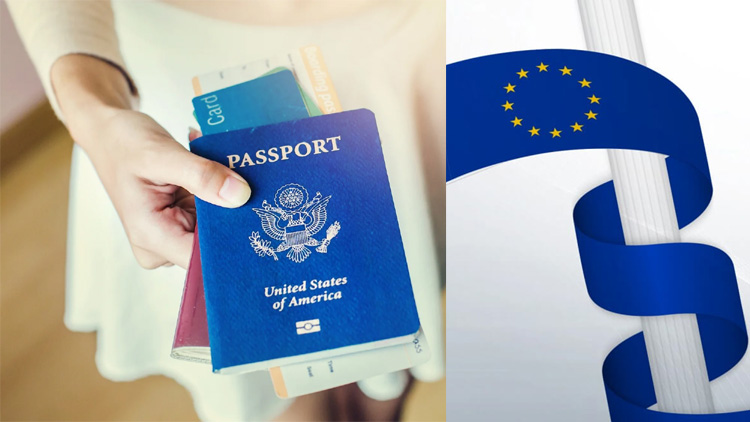Major Change for U.S. Tourists: EU to Require Visas in 2024
American passport-holders have enjoyed visa-free access to 184 destinations worldwide, ranking the U.S. passport as the eighth most powerful, according to the Henley Passport Index. However, that’s going to change for travelers planning a Euro trip next year.
Starting in early 2024, the European Union will introduce a travelers visa called the European Travel Information and Authorization System (ETIAS) for tourists from the U.S., Canada, Australia and New Zealand, it announced in July.
Travelers will apply for the visa using an online form and receive an email if approved. Travelers will need to provide biographical information, travel plans and history and answer security questions. Although most applicants can expect to be approved within an hour, some may face an up to 96-hour processing time.
The cost of the application is €7 (about $8) and is mandatory for all age groups. Once approved, the authorization is valid for several entries over three years or until the passport expires.
Alexa Moore, a frequent traveler to Europe, told Condé Nast Traveler that despite initial apprehension, the ease of the process lessened her initial concerns as more details emerged.
“Honestly, the buzz around [ETIAS] on social media made me a little nervous, but after doing some research, that initial shock definitely subsided,” Moore told the outlet. “It’s still easy for us to travel to Europe. It’s just one more step we have to think about before our trip.”
The ETIAS authorization will be mandatory for travel to all ETIAS member countries, including full Schengen members, European Free Trade Association (EFTA) countries, future Schengen members and European micro-states. The primary goal of ETIAS is to bolster border security and digitally monitor travelers entering and exiting EU countries.
The 90-day limit for U.S. passport holders to stay in Europe as tourists remains unchanged, with stays exceeding this duration requiring a special visa.
The precise launch date for the new travel authorization is still uncertain. Although there might be initial chaos, Moore believes it won’t discourage people from traveling to Europe.
“Initially, we may see more videos on social media and reports of people forgetting to apply for ETIAS, and possibly not being able to go, but that’s the norm any time we get a new travel requirement in place,” Moore told Condé Nast Traveler. “I also think pandemic travel has actually helped people be a little more prepared for the possibility of new systems and requirements being in place like having to submit test results, health information and other documents in preparation for entry even to a visa-free country.”

